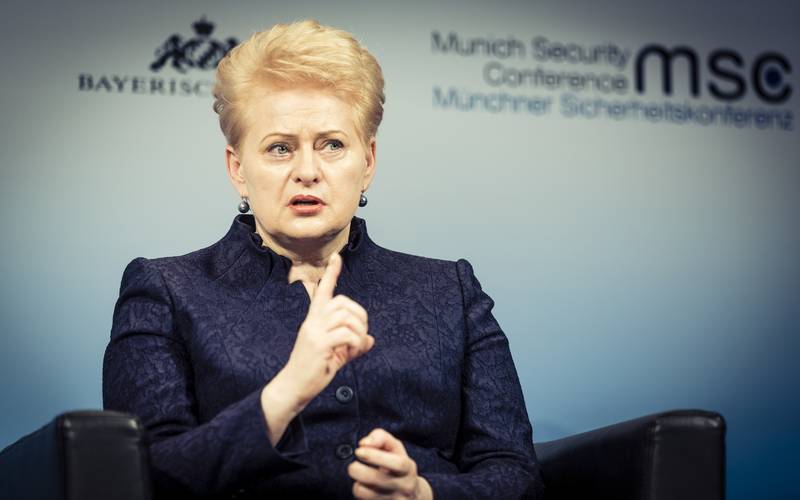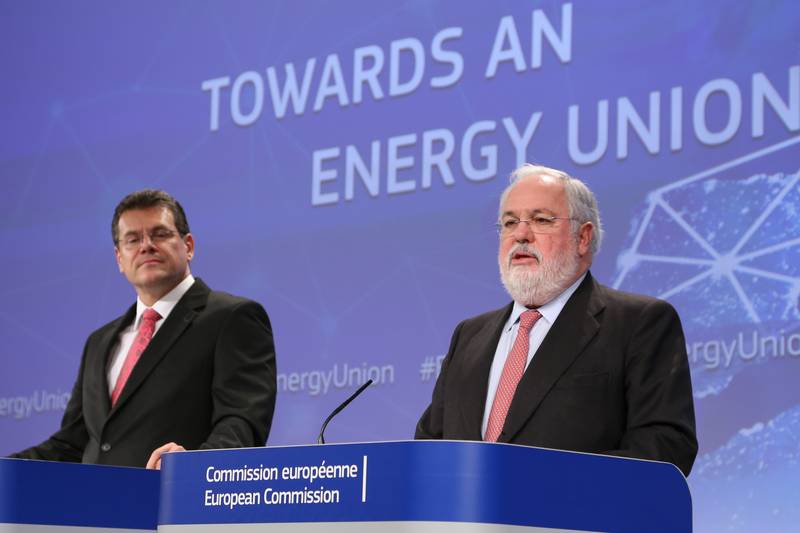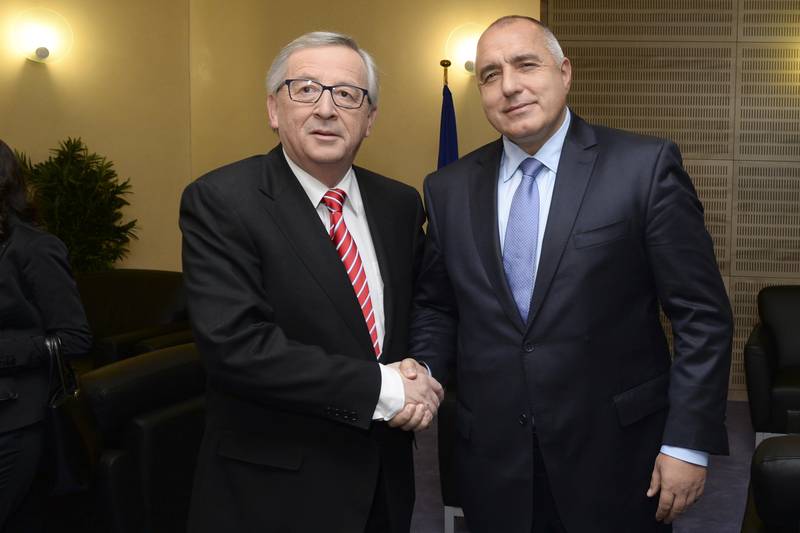A Single European Energy Policy?
Adelina Marini, September 13, 2011
 Tightening of discipline inside and of behaviour outside. More or less this is how we can describe in one sentence the European Commission Communication on the European energy policy, published on September 7 and titled: "The EU Energy Policy: Engaging with Partners Beyond Our Borders". The proposal, sent to the European Parliament, the Council, the European Economic and Social Committee and the Committee of the Regions, is built upon four main pillars: building up the external dimension of our internal energy market; strengthening partnerships for secure, safe, sustainable and competitive energy; improving access to sustainable energy for developing countries; and better promoting EU policies beyond its borders.
Tightening of discipline inside and of behaviour outside. More or less this is how we can describe in one sentence the European Commission Communication on the European energy policy, published on September 7 and titled: "The EU Energy Policy: Engaging with Partners Beyond Our Borders". The proposal, sent to the European Parliament, the Council, the European Economic and Social Committee and the Committee of the Regions, is built upon four main pillars: building up the external dimension of our internal energy market; strengthening partnerships for secure, safe, sustainable and competitive energy; improving access to sustainable energy for developing countries; and better promoting EU policies beyond its borders.
Tightening of internal discipline
For a very long time the European Union, in terms of its main institutions, has been fighting the fact that every member states follows its own agenda when it comes to securing energy deliveries for the national market. Some member states are in a better position as they have possibilities and had also invested in various sources in time. Others, however, are almost fully dependent on a single supplier (like Bulgaria for example), which forces these countries to act not always in the common EU interest.
Which is why in its Communication the Commission proposes the creation of an Exchange of Information Mechanism for the intergovernmental agreements of the member states. This is one of the key proposals in the document, which is entirely in line with the decisions of the member states leaders from their first European Council dedicated on energy policy of February 4 this year. This mechanism will extend and complement the notification procedure already applicable to gas agreements. The interesting thing here is that the mechanism will ensure exchange of information at an EU level before and after the negotiations with third countries.
Furthermore, the Commission will provide legal assistance to the member states while they negotiate agreements that directly touch upon internal market legislation. And the key sentence: "In specific cases, the Commission may give an ex-ante assessment of the conformity of a future intergovernmental agreement with the EU law before such agreement is signed". This sentence is extremely important because it shows that thus an opportunity is granted, the way the Commission has already introduced a similar mechanism for a peer review of member states' budgets (under the European Semester procedure), the Commission to have an opinion on agreements with third countries that are in a process of negotiation.
However, the text does not make it clear what the Commission will do if that ex- ante control shows that an agreement is violating the European legislation. But in the very beginning it is emphasised that "past experience proved that bilateral energy relations between individual Member States and third supplier or transit countries can result in a fragmentation of the internal market rather than a strengthening of the EU's energy supply and competitiveness".
ante control shows that an agreement is violating the European legislation. But in the very beginning it is emphasised that "past experience proved that bilateral energy relations between individual Member States and third supplier or transit countries can result in a fragmentation of the internal market rather than a strengthening of the EU's energy supply and competitiveness".
What is made clear though, is that the EU is reaching out to its neighbouring countries in order to integrate their energy grids with the European ones. And the other interesting proposal in the Communication is precisely in this context. As Turkey, that is in a process of negotiations for membership in the EU since 2005, will be soon linked to the EU power grid and could become a major gas hub and gas transiting country for the EU, the opening of the energy chapter is recommended in the accession negotiations. "Progress in negotiations of Turkey's accession to the Energy Community Treaty and progress towards the opening of the energy chapter in the accession negotiations would help deepen cooperation and establish a solid framework for gas transport through Turkey", is written in the document.
Chapter 15, Energy, is among the eight chapters blocked because of Cyprus. Turkey is indignant for a long time at the impossibility to start negotiations on this chapter, on which the country feels prepared enough and uses this argument in the negotiations with the EU on Turkey's cooperation for the construction of the Nabucco gas pipeline, and for its overall cooperation on the building of the Southern Corridor.
In its new Communication the European Commission points out that the opening of the Southern Gas Corridor is a key infrastructure priority for the EU because this will be the supply route for roughly 10-20% of EU estimated gas demand by 2020. However, there is still a division among the member states on the issue whether chapter 15 should be opened in the accession negotiations with Turkey. By the way, for more than a year now not a single chapter has been opened. (This issue was broadly discussed during the discussion euinside co-organised with the European Strategies and Policies Institute|espi and StratCom).
Let's talk with a single voice outside too
Just like the debt crisis in the eurozone has painfully shown that we cannot pass without a further strengthening of the integration processes, the Commission's Communication on the energy policy makes it clear too that national interests often are in contradiction to EU's common interest, which sooner or later returns like a boomerang to harm national priorities. The facts on which the document is based are more then eloquent: The EU imports over 60% of its gas and over 80% of its oil. The community faces growing competition for fossil fuel resources, including from emerging countries and energy producers themselves. All this looms up very clearly against the backdrop of the growing population trends and standard of living that could push global energy demand up by 40% by 2030, i.e. in less than 20 years.
This is why it is very important the EU to act in unity - a goal that so far failed many times. Now the Union is turning directly to its immediate neighbours, including Russia. Almost 20% of the EU's gas supply passes through Ukraine. In the document it is said that the EU must support efforts to rehabilitate Ukraine's Gas Transmission System, while improving transparency and the legal framework - a very difficult task given the current political environment in the country. It is also proposed the establishment of a tri-partite cooperation at political and administrative level with Russia and Ukraine to ensure stable and uninterrupted gas supplies through the Eastern Corridor.
It is the relations with Russia that are the third interesting thing in the document. Under the title "EU-Russia Energy Dialogue: from Partnership to Integration" it is written that the energy cooperation requires a new and strong legal base. Therefore, the negotiations on the New EU-Russia Agreement need to address crucial topics like access to energy resources, networks and export markets, investment protection, reciprocity, crisis prevention and cooperation, level playing field, and pricing of energy resources. All of these difficult issues to address have so far failed to deliver results. Although the old cooperation agreement expired in the end of 2007, there is still no indication that negotiations on the new framework are about to start in essence.
Currently the two sides work together on a A Partnership for Modernisation initiative, agreed in 2010, the main goal of which is not only cooperation for technological modernisation of Russia, but social and public modernisation too.
The Communication recommends a joint EU-Russia Energy Roadmap to identify opportunities for long-term cooperation that, on their part, will support market reforms and help improve the investment climate for EU energy companies in Russia.
 Regarding the EU's southern neighbours, in a large part of which political transformations are taking place, the Commission recommends harmonisation of legal framework in the area of energy with those countries that are willing to do that. Separately attention is paid to Libya because of the fall of the Gaddafi regime there. It is pointed out that the EU stands ready to extend its offer of building comprehensive energy partnerships with Northern African countries to Libya. Moreover, the document says, the EU will support European companies' efforts to help restore the country's potential for the export of oil and gas supplies.
Regarding the EU's southern neighbours, in a large part of which political transformations are taking place, the Commission recommends harmonisation of legal framework in the area of energy with those countries that are willing to do that. Separately attention is paid to Libya because of the fall of the Gaddafi regime there. It is pointed out that the EU stands ready to extend its offer of building comprehensive energy partnerships with Northern African countries to Libya. Moreover, the document says, the EU will support European companies' efforts to help restore the country's potential for the export of oil and gas supplies.
It is the case of Libya that underlines very strongly the lack of a single approach. So far the EU as whole did not include Libya in its neighbourhood policy. Instead, Italy had very well developed business relations precisely in the area of oil production. And not only Italy. It is no accident, then, that it was the Italian concern Eni to have returned first in the country with a fact-finding mission to assess the damages and the possibilities to resume the work of its oil facilities.
The reactions
The Greens in the European Parliament have criticised the Communication because it demonstrates "a damaging addiction to fossil fuel imports", as well as because of the unrealistic analysis of the future export capacities of certain countries. "With steeply rising energy demands in key supplier countries, ambitious energy efficiency measures in Russia or in the MEDA region must be a precondition for any substantial export quantities left for oil, gas or in future renewable electricity production".
In a joint statement the Bulgarian ministers of foreign affairs, Nickolay Mladenov and of economy, energy and tourism, Traycho Traykov, welcomed the Communication. "It is time to put an end to the practise 'divide and rule' in the European energy policy", Foreign Minister Nickolay Mladenov said on the occasion of the presentation of the Communication. "It is especially important to bring more transparency in the bilateral agreements with third countries. Only this way all will have guarantees that the agreed conditions are a result of market mechanisms and not of political calculations", Minister Traycho Traykov said. Such an approach has already been applied in the case of the agreement between Bulgaria and Romania for South Stream which was changed under the assistance of the European Commission.  A representative of Brussels was in Sofia for the signature of the document in November last year, Prime Minister Boyko Borissov announced then.
A representative of Brussels was in Sofia for the signature of the document in November last year, Prime Minister Boyko Borissov announced then.
The presented by EU Energy Commissioner Guenter Oettinger document still has no legal value. It is yet to be heatedly debated in the EU, debates that euinside will follow. It is clear from now though that just like there is to some extent justified opposition against integrational processes in the area of economic and fiscal policy, there will be resistance against the common energy policy too. Especially given the fact that in order to have a common energy policy, the Union first has to have a well developed internal infrastructure that can provide protection for the most vulnerable in energy terms countries. Something which requires huge investments in times of budget austerity.
Certainly, though, the Commission is right in its analysis that more and more people around the world will start consuming more energy. And no significant analytical talents are needed to understand that most vulnerable in the fight for ensuring long-term energy security will be the small countries that have no solid communities like the European Union, for example, behind their backs. But the European Union too will be nothing if it speaks with one voice one thing, while behind its back some member states speak another.
 Dalia Grybauskaite | © MSC/Koerner
Dalia Grybauskaite | © MSC/Koerner Maros Sefcovic, Miguel Arias Canete | © European Commission
Maros Sefcovic, Miguel Arias Canete | © European Commission Jean-Claude Juncker, Boyko Borissov | © European Commission
Jean-Claude Juncker, Boyko Borissov | © European Commission